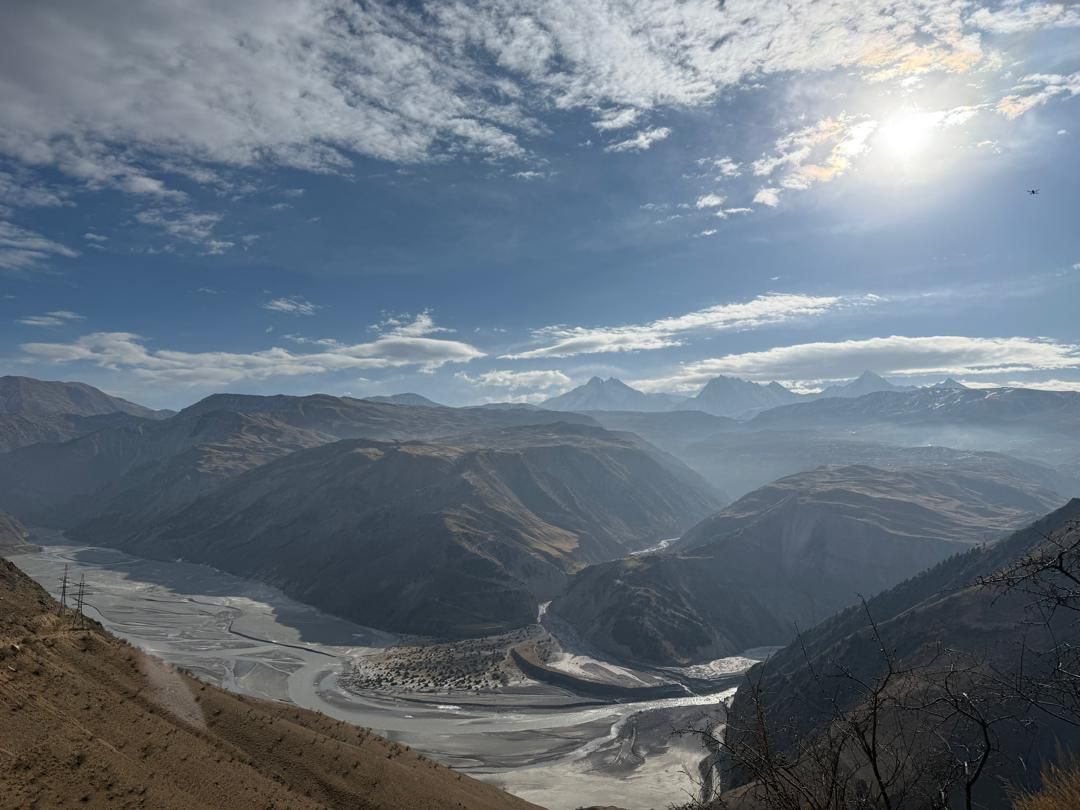EventKazakhstan25 October 2024
Regional Cooperation for Safer Future: Early Warning Systems for GLOFs
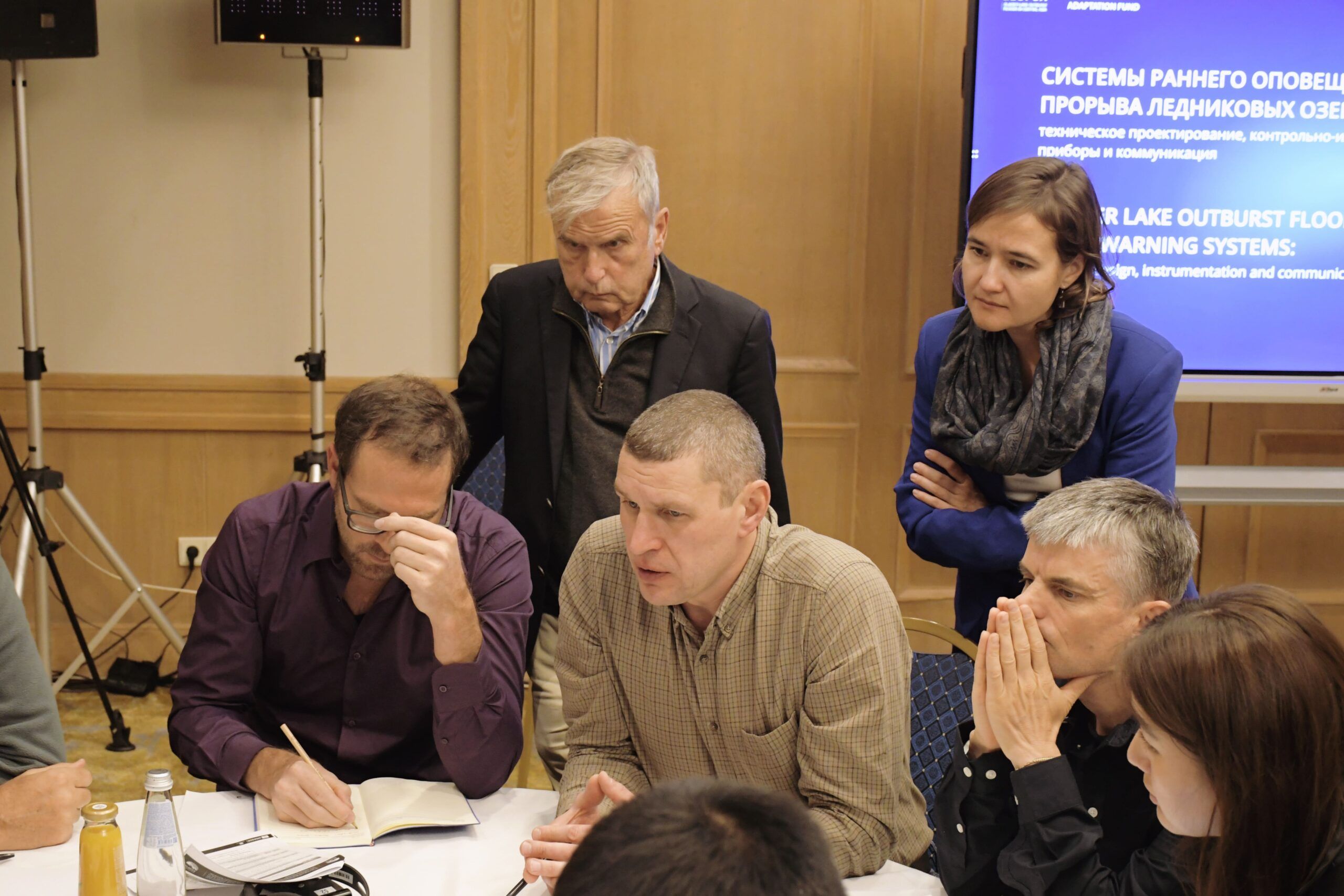
From October 22 to 24, 2024, Almaty hosted a seminar under the GLOFCA project titled ” Glacier Lake Outburst Flood Early Warning Systems: technical design, instrumentation and communication.” Organized by the UNESCO Regional Office in Almaty, the event gathered national experts, technical specialists, and representatives from the University of Zurich and SensAlpin.
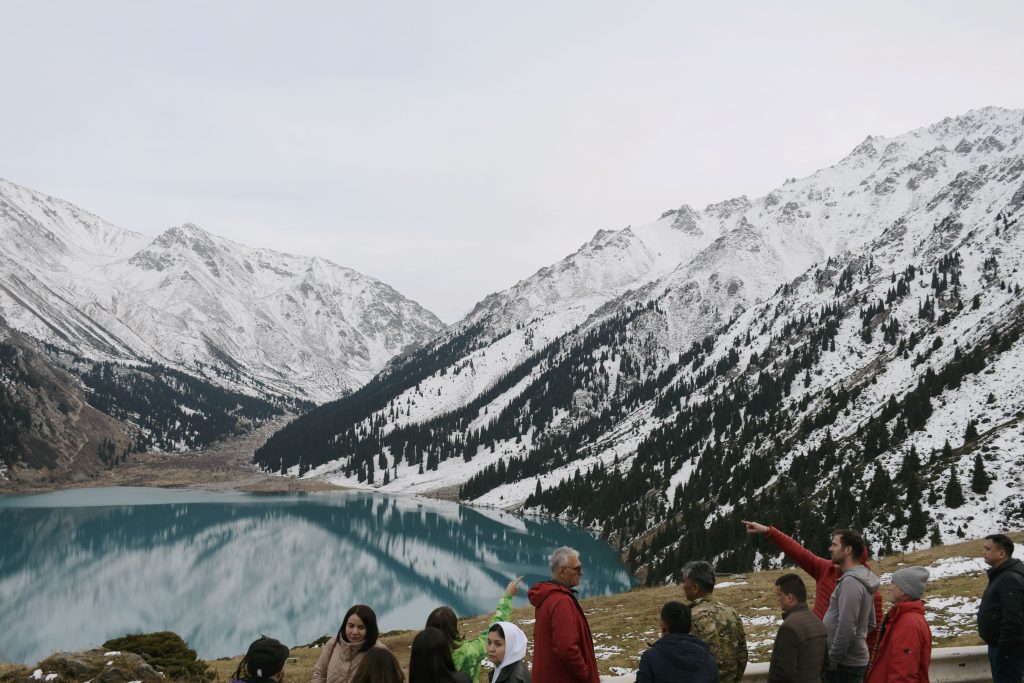
Growing Risks of Glacier Lake Outbursts
The accelerating glacial melt in Central Asia increases the risk of glacier lake outbursts, posing serious threats to mountain communities, their settlements, and infrastructure.
“Our region is highly vulnerable to debris flows. Kazakhstan alone has around 2,600 glaciers and more than 300 hazardous basins. Among the most destructive flows are those triggered by seismic activity, as well as glacial-origin debris flows caused by moraine lake outbursts,” noted Murat Kasenov, Deputy Head of the state organization Kazselezashita. Kasenov added, “With global climate change, glaciers are becoming increasingly vulnerable, leading to the formation of new moraine lakes and the expansion of existing ones. For example, one lake in the Chilik River basin has grown by one million cubic meters over the past two years, creating a significant debris flow hazard.”
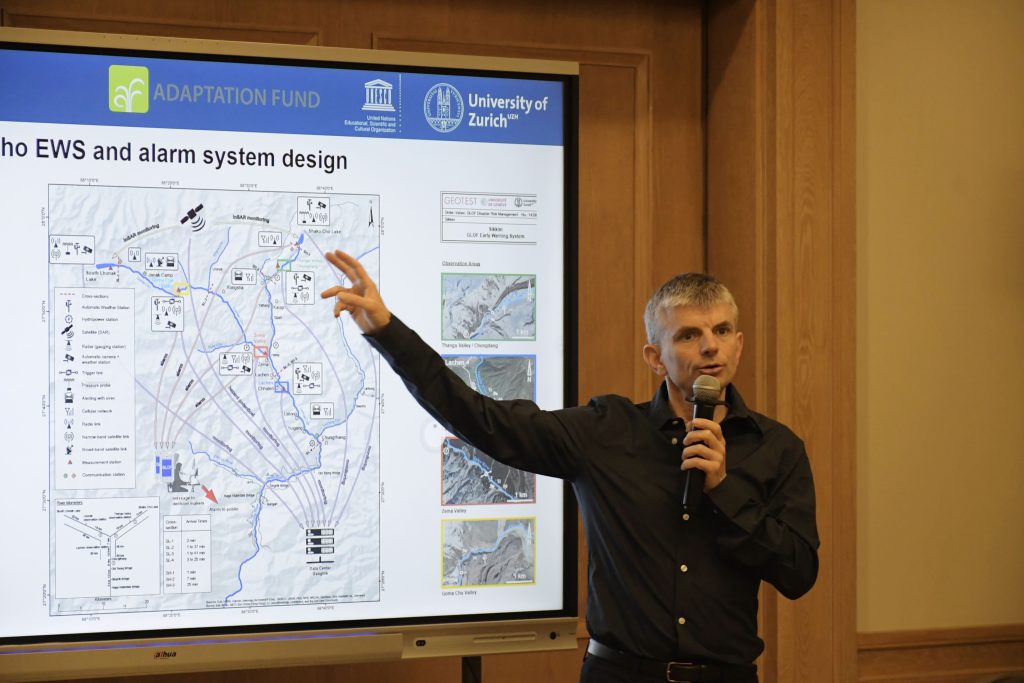
Collaborative Efforts to Develop Early Warning Systems in the Region
The seminar aimed to develop and plan the implementation of early warning systems (EWS) for pilot sites in each project country. Dr. Andreas Hasler, a representative from SensAlpin, shared Switzerland’s experience in implementing EWS, followed by a discussion with country representatives on adapting this approach to the specific conditions in Central Asia.
“Early warning systems must be tailored to the unique hazards of each region. We need to combine approaches, integrating physical barriers such as dams with automated systems,” Dr. Hasler emphasized.
The seminar fostered collaborative planning of EWS installation, technical maintenance, and operation within each country. During group discussions, participants also considered low-cost risk mitigation measures.
Hands-On Learning and Practical Knowledge Exchange
As part of the seminar, participants visited Kazselezashita’s Emergency Monitoring and Early Warning Center, where they reviewed the automated monitoring system and the stages of emergency alerting. They also toured the Ayusay dam, the Kumbel hydropost, and the Big Almaty Lake meteorological station. This visit enriched discussions and further enhanced knowledge exchange among the participants.
Read more
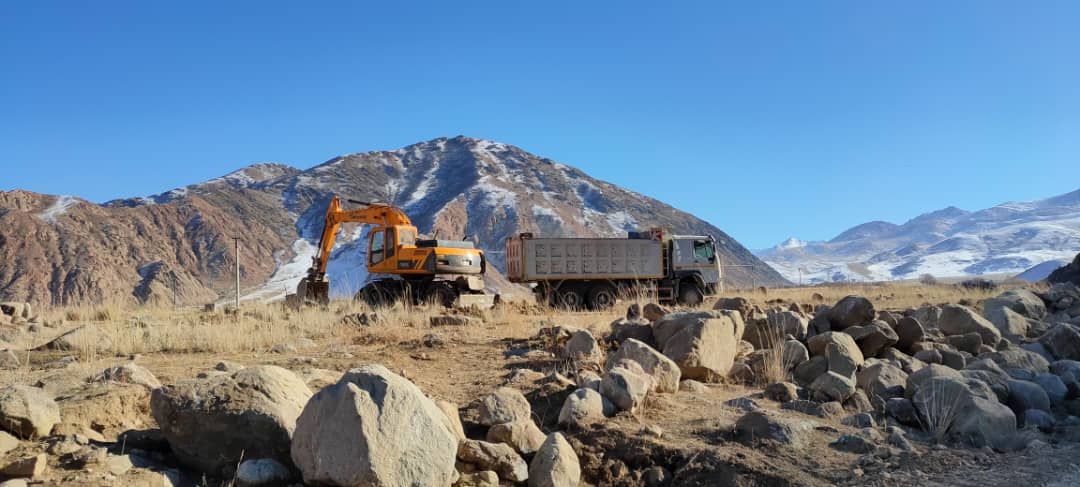
The GLOFCA Project Supports Construction of a Debris Diversion Channel in Tuura-Suu Village, Kyrgyz Republic
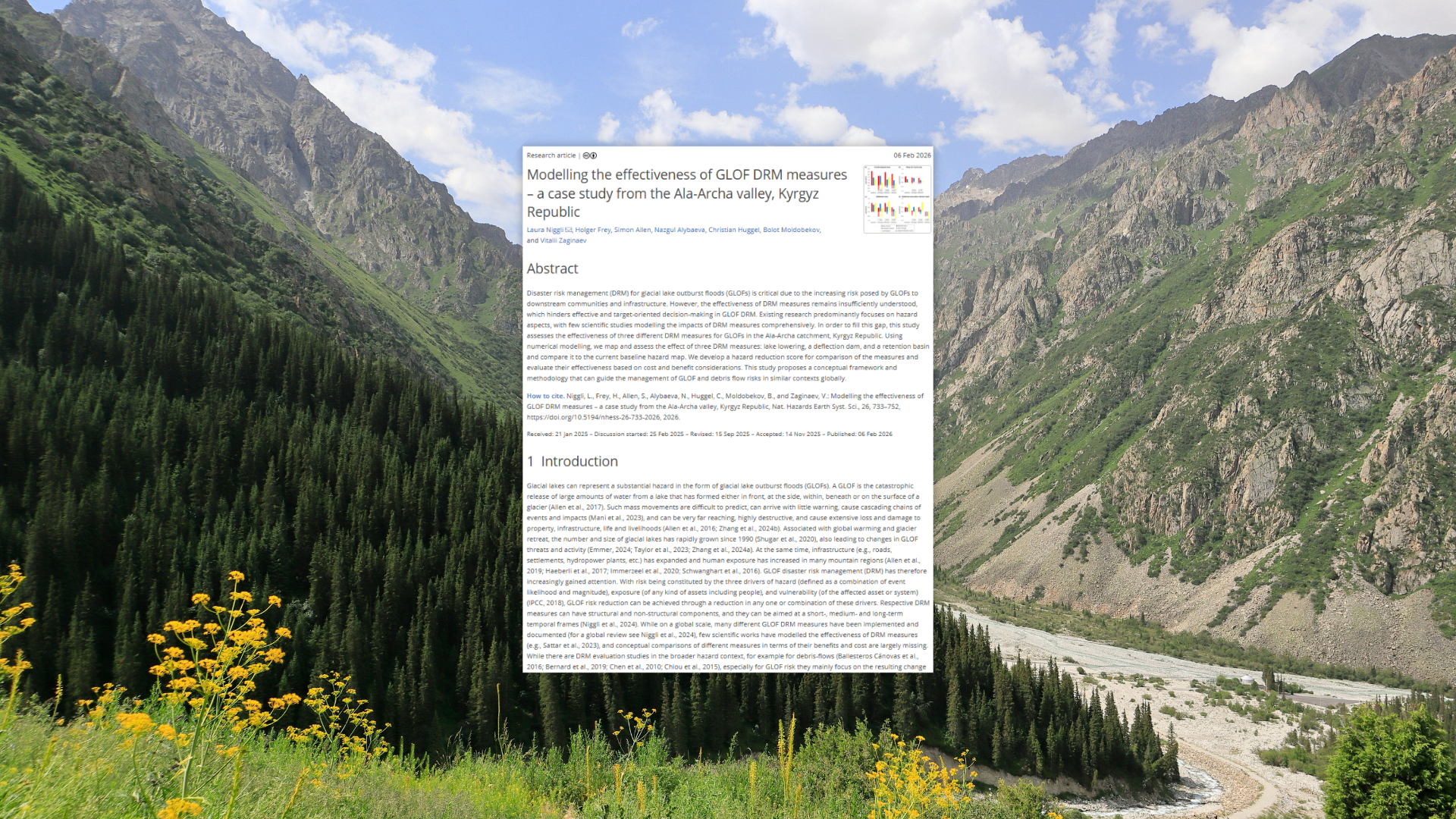
Study on the effectiveness of GLOF DRM measures in the Ala-Archa valley, Kyrgyz Republic
